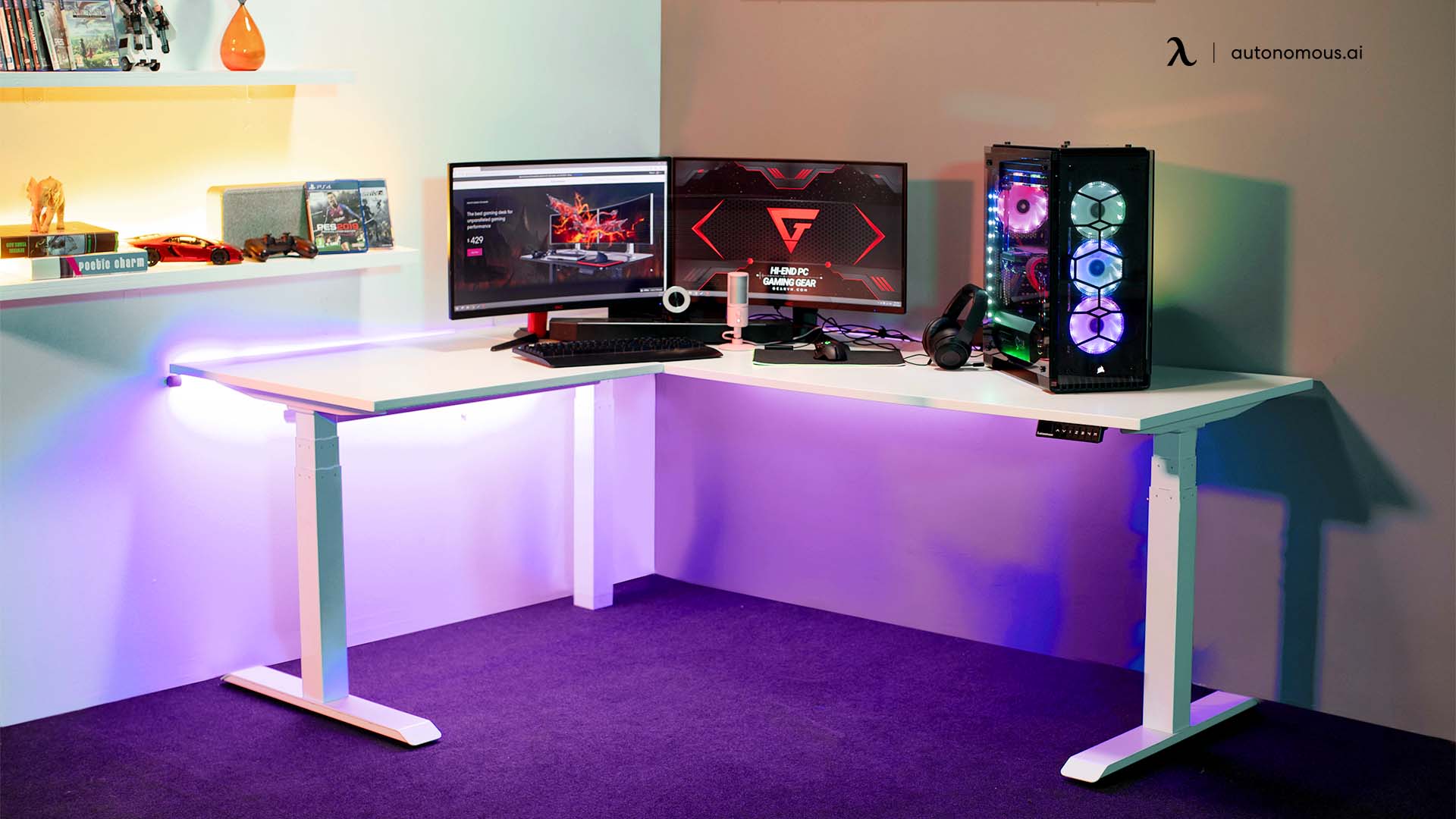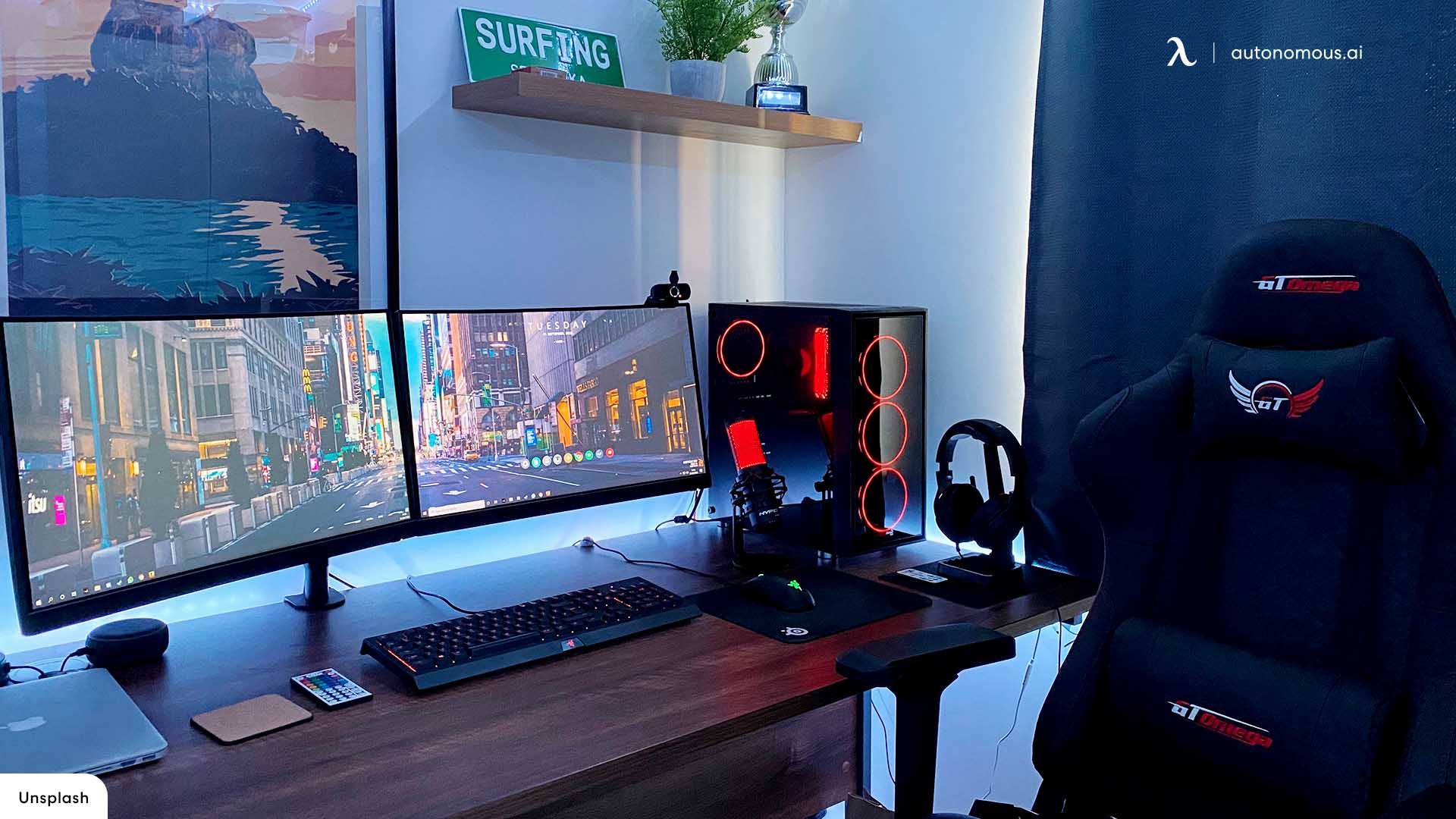Best PC Build for Streaming: Ultimate Guide to Top Performance
Streaming has become incredibly popular. A powerful PC build is essential for smooth streaming.
Creating the best PC build for streaming can be tricky. You need the right balance of components to ensure high performance and reliability. From the CPU to the graphics card, each part plays a vital role. The right setup can make your streams look professional and run seamlessly.
This guide will help you understand the best components for a streaming PC. Let’s dive in and explore the perfect build to elevate your streaming experience.
Choosing The Right Cpu
Choosing the right CPU is crucial for a smooth streaming experience. Your processor impacts your stream’s quality, performance, and your overall gaming experience. But how do you pick the perfect CPU for streaming?
Top Cpu Models
Let’s dive into some of the top CPU models that are perfect for streaming. The AMD Ryzen 9 5900X offers incredible multi-threading capabilities, making it ideal for handling streaming and gaming simultaneously.
Another great choice is the Intel Core i9-10900K. This processor is known for its high clock speeds and superb performance, ensuring a seamless streaming experience.
Both of these CPUs are powerful, but your choice depends on your budget and specific needs. Are you looking for maximum performance or a more budget-friendly option?
Balancing Cores And Threads
Understanding cores and threads is vital when choosing a CPU for streaming. More cores and threads can help manage multiple tasks like gaming and streaming efficiently.
For instance, a processor with 8 cores and 16 threads, such as the AMD Ryzen 7 5800X, can handle intense gaming while streaming without breaking a sweat.
But remember, more isn’t always better. Balance is key. Evaluate your streaming needs and choose a CPU that matches them. How many cores do you really need for your specific setup?
When I started streaming, I opted for a mid-range CPU. It worked well initially but struggled with more demanding games. Upgrading to a higher core count made a huge difference.
So, what’s your streaming goal? Do you want to stream high-end games or less demanding ones? This will guide your CPU choice.
Choosing the right CPU isn’t just about picking the most expensive model. It’s about finding the right balance for your needs. Ready to make your streaming setup unbeatable?

Credit: www.youtube.com
Selecting The Ideal Gpu
Choosing the right GPU is crucial for a smooth streaming experience. The GPU, or Graphics Processing Unit, handles the rendering of images, videos, and animations. A good GPU ensures high-quality visuals and a lag-free stream. Let’s explore the best GPUs for streaming and how to balance performance with budget.
Best Gpus For Streaming
NVIDIA GeForce RTX 3080 tops the list for many streamers. It delivers high performance and supports real-time ray tracing. For budget-conscious users, the NVIDIA GeForce GTX 1660 Super is a solid choice. It provides excellent performance for its price.
AMD Radeon RX 6800 is another great option. It offers impressive performance and is often cheaper than its NVIDIA counterparts. For those looking for an even more affordable option, consider the AMD Radeon RX 5600 XT. It balances performance and cost effectively.
Performance Vs. Budget
High-end GPUs like the RTX 3080 offer unmatched performance. They handle 4K streaming and gaming effortlessly. But these come at a high price. If budget is a concern, mid-range GPUs like the GTX 1660 Super or RX 5600 XT are great alternatives.
They provide good performance for 1080p or even 1440p streaming. Always consider your streaming needs and budget. Investing in a slightly better GPU can future-proof your system. But make sure it fits within your financial limits.
Memory Requirements
Proper memory is crucial for streaming. Aim for at least 16GB of RAM to ensure smooth performance. This helps in running multiple applications seamlessly.
When building the best PC for streaming, memory plays a vital role. It ensures smooth performance and multitasking capabilities. RAM (Random Access Memory) impacts how well your system handles multiple tasks, such as running streaming software and games simultaneously.Optimal Ram Capacity
For streaming, having enough RAM is crucial. Aim for at least 16GB of RAM. This capacity allows your PC to handle streaming software and other applications. It ensures your system runs smoothly without slowdowns. If you plan to stream high-quality content or use resource-intensive applications, consider 32GB of RAM. More RAM means better performance and future-proofing your build.Ram Speed And Performance
RAM speed affects how quickly data is accessed and processed. Faster RAM can improve overall system responsiveness. Look for RAM with a speed of at least 3000MHz. Higher speeds can offer slight performance boosts. Balancing speed and capacity is key. Ensure compatibility with your motherboard and CPU. Investing in quality RAM can make your streaming experience smoother and more enjoyable.
Credit: www.msi.com
Storage Solutions
When building a PC for streaming, storage solutions play a key role. They affect performance, load times, and overall efficiency. A good storage setup ensures smooth streaming and fast access to your files. Let’s explore the best storage options for your streaming PC.
Ssd Vs. Hdd
SSDs and HDDs are the two main types of storage. SSDs (Solid State Drives) are faster than HDDs (Hard Disk Drives). They use flash memory, which allows for quicker read and write speeds. This means faster boot times and quicker access to your games and files. On the other hand, HDDs store data on spinning disks. They are slower but offer more storage space at a lower price.
Recommended Storage Options
For a streaming PC, a combination of SSD and HDD works best. Use an SSD for your operating system and frequently used programs. This setup ensures quick boot times and smooth performance. A 500GB SSD is a good starting point. Add a 1TB or larger HDD for storing large files, games, and recordings. This way, you balance speed and storage capacity without breaking the bank.
Motherboard Considerations
Choosing the right motherboard is crucial for streaming. Ensure compatibility with your CPU and ample RAM slots. Look for high-speed USB ports to connect streaming equipment easily.
When building a PC for streaming, the motherboard plays a crucial role. It acts as the backbone of your system, connecting all the essential components. Selecting the right motherboard ensures that your streaming setup runs smoothly and efficiently. Let’s dive into key considerations to keep in mind.Choosing The Right Chipset
The chipset on your motherboard determines its compatibility with your CPU and other components. If you’re planning to use an AMD processor, look for motherboards with chipsets like B550 or X570. For Intel users, Z490 or Z590 are great choices. Each chipset offers different features. For instance, higher-end chipsets support overclocking and more PCIe lanes. Make sure the chipset aligns with your performance needs and future upgrade plans. Consider the chipset’s support for RAM speed and capacity. Streaming can be memory-intensive, so having the right RAM support is vital.Essential Features
A good motherboard for streaming should have essential features. Ensure it has enough USB ports for your peripherals like cameras, microphones, and external drives. Look for multiple PCIe slots if you plan on adding extra GPUs or capture cards. This flexibility can enhance your streaming quality. Integrated Wi-Fi can be a lifesaver if you can’t use a wired connection. It provides stability and keeps your setup clutter-free. Make sure the motherboard has a good audio codec. High-quality audio is crucial for streaming, and a good onboard sound card can make a big difference. Lastly, check the BIOS interface. An intuitive BIOS can make tweaking settings and troubleshooting much easier. Some motherboards offer user-friendly BIOS with clear, easy-to-navigate menus. Choosing the right motherboard sets the foundation for a powerful and efficient streaming setup. What features are you prioritizing in your build?Cooling Systems
Choosing the right cooling system is crucial for your streaming PC build. Effective cooling ensures your system performs well during intense streaming sessions. Overheating can cause lag, crashes, and potential damage to components. Let’s explore the best cooling options available.
Air Vs. Liquid Cooling
Air cooling uses fans to move heat away from the CPU. It’s affordable, easy to install, and requires low maintenance. Air coolers come in various sizes to fit different cases. They often provide sufficient cooling for most streaming setups.
Liquid cooling, on the other hand, uses liquid to transfer heat away from the CPU. It offers better cooling performance compared to air cooling. Liquid coolers are quieter and more efficient at handling high-performance tasks. They can be more expensive and complex to install. But for serious streamers, they are worth the investment.
Top Cooling Solutions
For air cooling, the Noctua NH-D15 is a popular choice. It offers excellent cooling performance and runs quietly. Another great option is the Cooler Master Hyper 212. It’s budget-friendly and provides reliable cooling for most CPUs.
In the liquid cooling category, the Corsair H100i RGB Platinum stands out. It offers superb cooling and customizable RGB lighting. The NZXT Kraken X63 is another excellent choice. It features a sleek design and efficient cooling performance.
Choosing the right cooling solution depends on your needs and budget. Both air and liquid coolers have their advantages. Select one that fits your streaming setup to ensure smooth and uninterrupted gameplay.
Power Supply Needs
When it comes to building the best PC for streaming, ensuring you have the right power supply is essential. The power supply unit (PSU) is the backbone of your PC, delivering the necessary power to all components. If your PSU is not up to the task, it can lead to system instability or even damage your components. Let’s dive into the key aspects of power supply needs for your streaming PC.
Calculating Power Requirements
Before choosing a PSU, you need to calculate the power requirements of your entire system. This includes the CPU, GPU, motherboard, RAM, storage drives, and any additional peripherals.
One practical way to do this is by using online PSU calculators. These tools let you input your components and give you a rough estimate of the wattage needed.
Always add an extra 100-150 watts to your final calculation. This provides headroom for future upgrades and ensures your PSU isn’t running at full capacity all the time.
Reliable Psu Brands
Not all PSUs are created equal. Investing in a reliable brand can save you from headaches down the line.
Brands like Corsair, EVGA, and Seasonic are well-regarded in the PC building community. They offer high-quality PSUs with good warranties.
Another tip is to look for 80 PLUS certification. This indicates the PSU is efficient and will save you money on electricity in the long run.
Have you ever had a PSU fail on you? It’s frustrating and can be costly. By choosing a trusted brand, you reduce the risk of failure and protect your investment.
Remember, your PSU is not the place to skimp. Make sure you choose wisely to keep your streaming setup running smoothly.

Credit: www.autonomous.ai
Case Selection
Choosing the right case for your streaming PC build is crucial. The case not only houses your components but also affects airflow and cooling. It also impacts the ease of building and upgrading your system. A good case will keep your setup neat and efficient.
Size And Compatibility
First, consider the size and compatibility of the case. Cases come in various sizes: full-tower, mid-tower, and mini-tower. Full-tower cases are large and offer plenty of room for components. Mid-tower cases are more common and offer a good balance of space and size. Mini-tower cases are compact and great for small spaces. Ensure the case fits your motherboard size, whether it’s ATX, micro-ATX, or mini-ITX.
Top Cases For Streaming Builds
Some top cases for streaming builds include the NZXT H510, Corsair iCUE 4000X RGB, and Fractal Design Meshify C. The NZXT H510 is well-known for its sleek design and excellent cable management. The Corsair iCUE 4000X RGB offers great airflow and customizable RGB lighting. The Fractal Design Meshify C is praised for its compact size and efficient cooling system. Each of these cases provides features that are beneficial for a streaming setup.
Peripherals And Accessories
When building the best PC for streaming, peripherals and accessories play a crucial role. They enhance your experience, provide comfort, and ensure efficiency. Investing in high-quality peripherals can make a significant difference.
Keyboards And Mice
A responsive keyboard is essential for streamers. Mechanical keyboards offer tactile feedback and durability. Popular options include Cherry MX switches and RGB lighting. These features enhance your setup and add visual appeal.
A precise mouse is equally important. Look for mice with adjustable DPI settings. This allows for smooth and accurate movements. Brands like Logitech and Razer offer reliable choices. Consider ergonomic designs for prolonged use.
Streaming Essentials
Streaming requires specific gear. A high-quality microphone ensures clear audio. USB microphones are user-friendly and deliver good sound quality. Brands like Blue Yeti and Audio-Technica are popular among streamers.
A webcam with high resolution is also vital. Look for webcams that support 1080p or higher. This ensures a clear video feed for your audience. Logitech C920 and Razer Kiyo are excellent choices.
Lighting can enhance your video quality. Ring lights provide balanced illumination and reduce shadows. They are easy to set up and adjust. Elgato and Neewer offer reliable lighting solutions.
Building And Testing
Choosing the best PC build for streaming requires a powerful processor and high-quality graphics card. Ensure adequate RAM and storage for smooth performance. Reliable internet connectivity is essential for seamless live broadcasts.
Building and testing your PC for streaming is crucial to ensure your setup is both powerful and reliable. Not only does the assembly process require attention to detail, but the testing phase is essential to guarantee that your system can handle the demands of streaming without hiccups. Let’s dive into some practical tips and steps to make your build and testing process smoother.Assembly Tips
Building your PC can be an exciting yet daunting task. Start by organizing all your components. Lay them out on a clean, static-free surface. Use a magnetic screwdriver to avoid losing tiny screws. Trust me, it’s a lifesaver. When installing the CPU, align it correctly with the socket. Don’t force it. If it doesn’t fit, double-check the alignment. Apply a thin layer of thermal paste before attaching the cooler. This ensures efficient heat transfer. Secure your RAM sticks firmly in their slots. Listen for the click. Install your GPU in the top PCIe slot for the best performance. Make sure it’s locked in place. Route your cables neatly. This improves airflow and makes future upgrades easier.Stress Testing For Stability
Once your PC is assembled, it’s time to test its stability. Stress testing ensures your system can handle heavy loads. Use software like Prime95 or AIDA64 for CPU stress tests. Run the test for at least an hour. Watch your temperatures closely. For GPU stress testing, tools like FurMark or 3DMark are great options. Monitor your GPU temps to prevent overheating. Check your RAM stability with MemTest86. Run multiple passes to ensure no errors are present. Test your overall system with a benchmark tool like PCMark. This gives you a score to compare with similar builds. Keep an eye on your system’s temperatures. High temps can indicate poor cooling solutions. Adjust as needed. Have you ever built a PC and encountered unexpected issues during testing? Share your experiences and tips in the comments below! By following these assembly and testing tips, you’ll set yourself up for a smooth streaming experience. Happy building!Frequently Asked Questions
What Is A Good Pc Build For Streaming?
A good PC build for streaming includes an Intel i7 or Ryzen 7 CPU, 16GB RAM, NVIDIA GTX 1660, and a 500GB SSD.
What Are The Best Pc Requirements For Streaming?
For optimal streaming, use a PC with an Intel i7 or Ryzen 7 CPU, 16GB RAM, and an Nvidia RTX 2070 GPU. Ensure stable internet connection.
What Pc Do Most Streamers Use?
Most streamers use custom-built PCs with Intel or AMD processors, NVIDIA graphics cards, and at least 16GB RAM for optimal performance.
What Cpu Is Best For A Streaming Pc?
The AMD Ryzen 9 5900X is the best CPU for a streaming PC. It offers excellent multi-core performance and efficiency.
Conclusion
Building the best PC for streaming doesn’t have to be complicated. Focus on good components. Invest in a strong CPU and GPU. Ensure you have enough RAM. Use a reliable internet connection. Pay attention to cooling systems. A balanced setup ensures smooth streaming.
Happy building and happy streaming!



